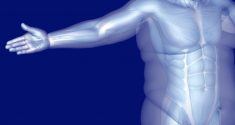Scientists have long known that shift work increases a person’s chance of breast cancer. However, new research suggests that even people who work normal hours may be at higher risk of this devastating cancer if they have one seemingly innocent factor: Exposure to outdoor light at night. With light pollution levels a very real and growing threat in many parts of the world, this could become a public health crisis.
The Effects of Outdoor Light at Night
Do you live in an area where the lights blaze all night? Although this is common, it may also be very bad for your health. Researchers studied over 100,000 women, including their area, risk factors and cancer rates. When adjusted for other risk factors, women who lived in areas with a great deal of light pollution had a 14 percent greater risk of developing breast cancer. This suggests that light pollution may be a major contributing factor to breast cancer in the United States and Europe.
With breast cancer one of the most deadly cancers in the U.S., this raises interesting questions. Should light pollution be added to the long and growing risk of breast cancer risk factors that include family history, gene mutations, smoking, drinking alcohol and lack of exercise? Should women at high risk of breast cancer move to a rural area that is dark at night or hang blackout curtains to keep their bedrooms dark? Should we all be taking active steps to reduce the amount of light that we are exposed to at night?
Cancer and the Circadian Rhythm

Last, people who have a disrupted circadian rhythm are less likely to make good health choices that reduce cancer risk. People who are exhausted tend to eat more calories, make less healthy food choices and exercise less. Most people who are tired can think only of staying awake and getting through their day. Because we are more likely to have metabolic disturbance when we don’t get enough sleep, these poor choices can add up to serious long term health effects.
The Problem of Light Pollution
One of the major problems with this new knowledge is that light pollution appears to be virtually unavoidable for people who live in or near a large city. The glow of Los Angeles can be seen up to 200 miles away, leaving it hard for residents to escape it. 99 percent of people in the continental United States are exposed to enough light pollution to make a measurable difference in their health outcomes.
Animals also are affected by the constant presence of electric light in our world. Light pollution can alter how they migrate, feed and reproduce. For example, sea turtles are primed by evolution to crawl toward the light when they hatch. However, lights in cities can cause them to crawl onto freeways rather than into the ocean—a deadly choice. Animals also may suffer from high disease risk from a dysregulated circadian rhythm, similar to humans. We all suffer from light pollution.
Reducing the Effects of Light Pollution
If you want to reduce the effects of light pollution without moving to the middle of nowhere, there are a few things that you can do. Consider making some of the following changes:
- Turn off lights and electronics at least an hour before bed.
- Consider using blackout curtains or other curtains designed to keep out as much light as possible.
- Use yellow light bulbs outside. These are a wavelength less likely to interfere with your sleep and also less likely to influence animal behavior in negative ways.
- Advocate for laws that encourage and/or enforce turning off lights at night.
- Use dimmer bulbs rather than high-wattage ones.
There is no way to completely escape light in most of the United States and Europe. However, reducing your exposure to light pollution may significantly lessen your risk of disease. Just as you eat a healthy diet and get daily exercise to lower disease risk, it is important to ensure that you also get enough sleep.
The light pollution that bathes most of our country may actually be making us sick. However, there are ways that we can reduce the impact of this kind of pollution. Taking steps to reduce ambient light will allow us to enjoy darker, starrier nights for years to come while also helping us to remain healthy and cancer-free.







